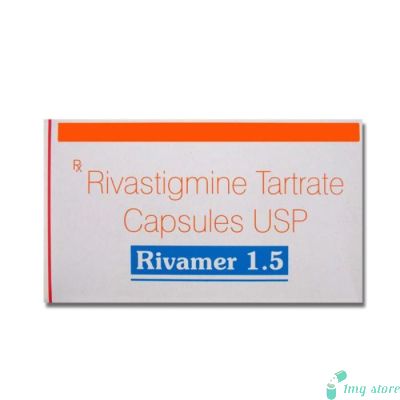Pramipex Tablet (Pramipexole)
Pramipex Tablet (Pramipexole) is a medication prescribed for the treatment of Parkinson's disease as well as restless leg syndrome. Pramipexole is also known as Mirapex. Restless leg syndrome is characterized by an irresistible urge to move the legs, often accompanied by uncomfortable and unpleasant sensations.
Introducing Pramipex Tablet (Pramipexole):
Pramipex Tablet, also known as Mirapex, is a medication used for the treatment of Parkinson's disease and Restless legs syndrome (RLS). It belongs to a class of drugs called dopamine agonists, which work by stimulating certain receptors in the brain that are involved in controlling movement.
Buy Pramipexole Tablet at 1mgstore.com: If you are in need of Pramipexole Tablets, you can conveniently purchase them at 1mgstore.com. We offer a wide range of medications, including Pramipexole, at competitive prices. By ordering from 1mgstore.com, you can have the medication delivered directly to your doorstep, ensuring convenience and reliability.
Benefits of Pramipexole Tablet:
Parkinson's Disease: Pramipexole helps to improve motor symptoms such as tremors, stiffness, and slowed movement commonly associated with Parkinson's disease. It can also reduce the frequency and severity of "off" periods, where the medication's effects wear off before the next dose.
Restless Legs Syndrome (RLS): Pramipexole effectively alleviates the uncomfortable sensations and urges to move that characterize RLS. By reducing these symptoms, it promotes better sleep and overall quality of life.
Pramipexole Tablet alternatives: In some cases, individuals may require alternatives to Pramipexole Tablets due to factors such as intolerable side effects or insufficient response to the medication. Some alternative treatment options for Parkinson's disease and restless legs syndrome include:
Levodopa: Levodopa is a common alternative for managing Parkinson's disease. It works by increasing dopamine levels in the brain, improving motor symptoms.
Ropinirole: Ropinirole is another dopamine agonist used to treat both Parkinson's disease and restless legs syndrome. It functions similarly to Pramipexole and can be an alternative for individuals who do not respond well to Pramipexole or experience side effects.
It is important to consult with a healthcare professional who can evaluate your specific condition and medical history to determine the most appropriate treatment option or alternative for you.
Dosage of Pramipexole Tablet: The dosage of Pramipexole Tablet (Pramipex) may vary depending on the condition being treated and individual factors. It is essential to follow the instructions provided by your healthcare professional or the information on the medication label. The dosage may also be adjusted by your doctor based on your response to treatment.
For Parkinson's Disease:
The initial recommended dose of Pramipexole is usually 0.375 milligrams (mg) once daily. The dosage may be gradually increased every five to seven days based on the response and tolerance. The maintenance dose typically ranges from 1.5 mg to 4.5 mg per day, divided into two to three doses.
For Restless Legs Syndrome (RLS):
The initial recommended dose for RLS treatment is generally 0.125 mg taken once daily, two to three hours before bedtime. The dosage may be increased every four to seven days if necessary. The usual maintenance dose ranges from 0.25 mg to 0.75 mg per day.
It is crucial to follow your doctor's instructions regarding the specific dosage and schedule for Pramipexole Tablet. Do not make any changes to the dosage without consulting your healthcare provider.
How Pramipexole Tablet works:
Pramipexole Tablet (Pramipex) is a dopamine agonist that works by stimulating specific receptors in the brain called dopamine receptors. In Parkinson's disease, there is a deficiency of dopamine, a neurotransmitter responsible for coordinating movement. By binding to dopamine receptors, Pramipexole mimics the action of dopamine, helping to improve motor symptoms.
In restless legs syndrome (RLS), the exact cause is not fully understood, but it is believed to involve abnormal dopamine signaling in the brain. Pramipexole helps alleviate the uncomfortable sensations and urges to move by stimulating dopamine receptors, thereby regulating the abnormal dopamine activity associated with RLS.
By effectively binding to dopamine receptors, Pramipexole helps restore and regulate dopamine function, resulting in improved motor control in Parkinson's disease and relief from RLS symptoms.
Precautions for Pramipexole Tablet:
Before starting Pramipexole Tablet, it is important to consult with a healthcare professional who can assess your medical history, current medications, and any potential contraindications or interactions.
Follow the prescribed dosage and schedule as instructed by your doctor. Do not make any changes to the dosage without consulting your healthcare provider.
Pramipexole may cause dizziness, drowsiness, or other side effects that can impair your ability to drive or operate machinery. Exercise caution and avoid these activities if you experience such effects.
Mirapex can cause a drop in blood pressure, leading to orthostatic hypotension (a sudden decrease in blood pressure upon standing up). Be cautious when changing positions, especially from lying down or sitting to standing, to minimize the risk of falls.
Dopamine agonists, including Pramipexole, have been associated with the development of impulse control disorders such as compulsive gambling, shopping, or eating. Inform your healthcare provider if you experience any unusual behavioral changes.
Pramipexole may cause or exacerbate mental health conditions such as depression or hallucinations. Report any changes in mood, behavior, or thoughts to your doctor.
If you have kidney problems, your doctor may need to adjust the dosage of Pramipexole. Inform your healthcare provider about any kidney conditions or if you are undergoing dialysis.
In the treatment of restless legs syndrome (RLS), long-term use of Pramipexole can sometimes lead to a worsening of symptoms, known as augmentation. Contact your doctor if you notice an increase in RLS symptoms or any other concerns.
Pramipexole Tablet (Pramipex) is used for the following purposes:
Parkinson's Disease: Pramipexole is prescribed to manage the symptoms of Parkinson's disease, a neurodegenerative disorder that affects movement. It helps alleviate motor symptoms such as tremors, stiffness, and slowed movement, improving overall motor control and quality of life.
Restless Legs Syndrome (RLS): Mirapex is also used to treat restless legs syndrome, a condition characterized by uncomfortable sensations and an irresistible urge to move the legs. By reducing these symptoms, Pramipexole helps improve sleep quality and provides relief from RLS-related discomfort.
Side Effects of Pramipexole Tablet:
Pramipexole Tablet (Pramipex) may cause certain side effects in some individuals. While not everyone experiences these side effects, it is important to be aware of them. Here are some common side effects associated with Pramipexole:
Nausea: Feeling nauseous or experiencing an upset stomach is a common side effect of Pramipexole. Taking the medication with food or as directed by your healthcare provider may help reduce this side effect.
Dizziness: Mirapex can cause dizziness or lightheadedness, especially when standing up from a sitting or lying position. It is important to change positions slowly and be cautious to prevent falls.
Drowsiness: Pramipexole may induce drowsiness or excessive sleepiness. It is advisable to avoid activities that require mental alertness or coordination, such as driving or operating machinery until you know how the medication affects you.
Fatigue: Some individuals may experience fatigue or a general feeling of tiredness while taking Pramipexole. If this side effect persists or affects your daily activities, consult your healthcare provider.
Hallucinations: In rare cases, Pramipexole can cause hallucinations, which involve seeing or hearing things that are not actually present. If you experience hallucinations or any other changes in perception, inform your healthcare provider promptly.
Impulse Control Disorders: Pramipexole has been associated with the development of impulse control disorders, such as compulsive gambling, shopping, or eating. If you notice any unusual behavior changes, report them to your doctor.
Orthostatic Hypotension: In Ortho Care, Pramipexole may cause a drop in blood pressure, leading to orthostatic hypotension. This can result in dizziness or fainting when changing positions. Taking precautions such as standing up slowly can help minimize this effect.
Can Pramipexole Tablet cause changes in mood or behavior?
Answer: Yes, Pramipexole has been associated with mood and behavior changes, including depression, anxiety, or the development of impulse control disorders such as compulsive gambling. If you notice any unusual changes, it is important to inform your healthcare provider.
Is it safe to take Pramipexole tablets during pregnancy?
Answer: The safety of Pramipexole during pregnancy has not been well established. It is recommended to consult with your doctor if you are pregnant, planning to become pregnant or suspect you may be pregnant. They will weigh the potential risks and benefits before making a decision.
Can Pramipexole Tablet be used in children?
Answer: Pramipexole is typically not recommended for use in children. Its safety and effectiveness in pediatric populations have not been extensively studied. The use of Pramipexole in children should be carefully evaluated by a pediatric neurologist or healthcare professional.
Can Pramipexole Tablet be abruptly stopped?
Answer: It is generally not recommended to abruptly stop taking Pramipexole without medical guidance. Sudden discontinuation can lead to withdrawal symptoms or a worsening of Parkinson's disease or restless legs syndrome symptoms. It is important to consult with your doctor for proper tapering or discontinuation of the medication, if necessary.
Can Pramipexole Tablet interact with herbal supplements?
Answer: Pramipexole may interact with certain herbal supplements, just as it can interact with other medications. Some herbal products, such as St. John's wort, may affect the levels or activity of Pramipexole. It is important to inform your healthcare provider about any herbal supplements you are taking to avoid potential interactions.
Drug Interactions with Pramipexole Tablet:
When taking Pramipexole tablets, it is crucial to be aware of potential drug interactions, including those with other medications used in neurology. Inform your healthcare provider about all the medications, supplements, and herbal products you are taking to avoid any adverse effects or reduced effectiveness of the treatment. Here are some examples of drug interactions to be cautious of:
Other Dopamine Agonists: Concurrent use of multiple dopamine agonists, such as Pramipexole, with other Neurology Drugs in the same class, may increase the risk of side effects or exacerbate symptoms. It is essential to follow your doctor's guidance and avoid using multiple dopamine agonists simultaneously.
Discounted Pramipexole Tablet: At 1mgstore.com, you may also find discounted prices for Pramipexole Tablets. Taking advantage of these discounts can help you save money while ensuring access to the medication you need for your condition. It is always advisable to check the website regularly for any ongoing promotions or discounts.
Levodopa: Combining Mirapex with levodopa, a medication commonly used in the treatment of Parkinson's disease, can enhance the effects of both drugs. However, dosage adjustments may be necessary to manage side effects and optimize therapeutic benefits. Your healthcare provider will monitor and adjust the medications accordingly.
Antipsychotics: Certain antipsychotic medications used in neurology, such as risperidone or quetiapine, may interact with Pramipexole and potentially increase the risk of side effects such as drowsiness, dizziness, or low blood pressure. Close monitoring is essential if these medications are used together.
Medications affecting Dopamine: Drugs that affect dopamine levels or activity in the brain, such as certain antidepressants (e.g., selective serotonin reuptake inhibitors - SSRIs) or medications used to treat psychosis (e.g., haloperidol), may interact with Pramipexole. Your healthcare provider will evaluate the potential risks and benefits of combining these medications.
Blood Pressure Medications: Pramipexole may lower blood pressure. Combining it with other blood pressure-lowering medications, such as alpha-blockers or beta-blockers, can increase the risk of excessive blood pressure reduction. Regular monitoring of blood pressure is recommended, and dosage adjustments may be necessary.
Cimetidine: Cimetidine, a medication used to treat stomach ulcers and acid reflux, may increase the blood levels of Pramipexole. Inform your healthcare provider if you are taking cimetidine to adjust the dosage of Pramipexole if needed.
| Manufacturer | : | Sun Pharma, India |
| Equivalent Brand | : | Mirapex |
| Generic Search | : | Pramipexole |











